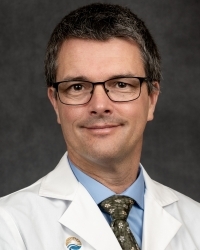|
Wallace: 'It's the Small Things' by Dr. Ian Wallace, Clearwater Hospital and Clinics I am sitting at the lodge at Bald Mountain watching my 9-year-old take her first skiing lesson. She is eagerly taking in instruction from an instructor who is patiently showing her the basics. Weight the downhill ski this way; look in this direction, if you get going too fast here's how to slow down. As with any new endeavor, she has moments of insight and others of frustration. As adults we know that it is consistent practice of "the small things" that can lead to greatness on the ski slope, and a healthier, happier life.  I think most of us would agree we have been distracted with the coronavirus pandemic. It has taken up much of our mental attention, emotional energy and is constantly in the news with its new mutations and continued spread. While it is still important to wear a mask, keep your distance with others outside your family unit, and wash your hands frequently, it should not distract us from the basics. Just as the ski instructor was teaching my daughter the "small things" on the slopes, we should remember what preventative services are important. Taken from the CDC FastStats from 2019, the top four causes of death have not changed: heart disease, cancers (all types), accidents, and strokes. For most of these causes of death there are simple interventions or prevention strategies which can reduce your risks. Heart disease has been the number one cause of death for years in the United States and recently became the number one killer worldwide. Smoking is a major risk factor for developing heart disease. Ask your doctor about ways he/she can help you quit. Small plaques of cholesterol that develop in arteries and cause blockages is the leading cause of heart attacks and strokes. There are simple things that you can do though to make sure you are safe. At your next visit, ask if you need cholesterol screening and relay to your doctor if anyone in the family has recently had a new heart attack or stroke. If you are starting to have symptoms of being more tired when doing usual chores around the house, or at work you should mention these as well. Heart disease may not end up being the culprit but some simple blood tests and possibly a stress test might find it before it causes a real problem. Cancer comes in second place in its many forms with the top cancer diagnoses being breast, prostate, lung and colon cancer. During the pandemic, many have put off easy screening tests for concern of contracting the virus. By taking the usual precautions of wearing a mask, socially distancing, and washing your hands when visiting the doctor, routine cancer screening is a very low risk proposition. For example if you have never been screened for lung cancer and are a smoker now might be the perfect time. It involves a simple scan of the lungs and then a follow up visit to your doctor. If you are behind on your colon cancer screening come on in to have a colonoscopy scheduled, or if behind on a mammogram or cervical cancer screening let us know. These are simple preventative screening exams that if they detect something early may allow it to be treated. Accidents is third on the list and includes three broad categories. The largest portion of accidental deaths is from unintended poisonings. Keeping chemicals locked and secured is simple and effective. Making up the rest of the accidents are motor vehicle accidents and falls. When driving, always use your seat belt, place children in an appropriate car seat or booster, make sure that airbags are turned on and take a break if getting drowsy are all simple ways to help prevent an accident. Last in our top four are strokes. While some might think that strokes are inevitable for many, they are not. Having your blood pressure checked at your doctor's office, the pharmacy, or a health fair and if elevated coming in to talk about blood pressure medicine is a start. Understanding your family's history of strokes can be an important clue as to your risk. If many members in your family have elevated cholesterol and have suffered a stroke, controlling your cholesterol would be important. If you suspect you are having a stroke, definitely do not wait at home. There is a limited amount of time when treatments are effective. If you are having some kind of neurological symptom that is severe - unable to talk, unable to move a particular part of the body, loss of vision, dizziness that isn't going away - it's probably time to head to the ER to be checked out. The pandemic will be with us for many more months even with the rollout of vaccines. You can still protect yourself by wearing a mask, keeping your distance and washing your hands when you come in for your preventative screening tests. If you have a new symptom you want to talk about you can make an appointment to be seen via telemedicine or in person. Simple preventative screening tests work and are effective which will provide you peace of mind that you are doing all you can to stay healthy. After all, it's "the small things" that will allow us to look forward to a healthier life. Photo: Dr. Ian Wallace |
|
| Window on the Clearwater P.O. Box 2444 Orofino, ID 83544 Phone: (208) 476-0733 Fax: (208) 476-4140 |